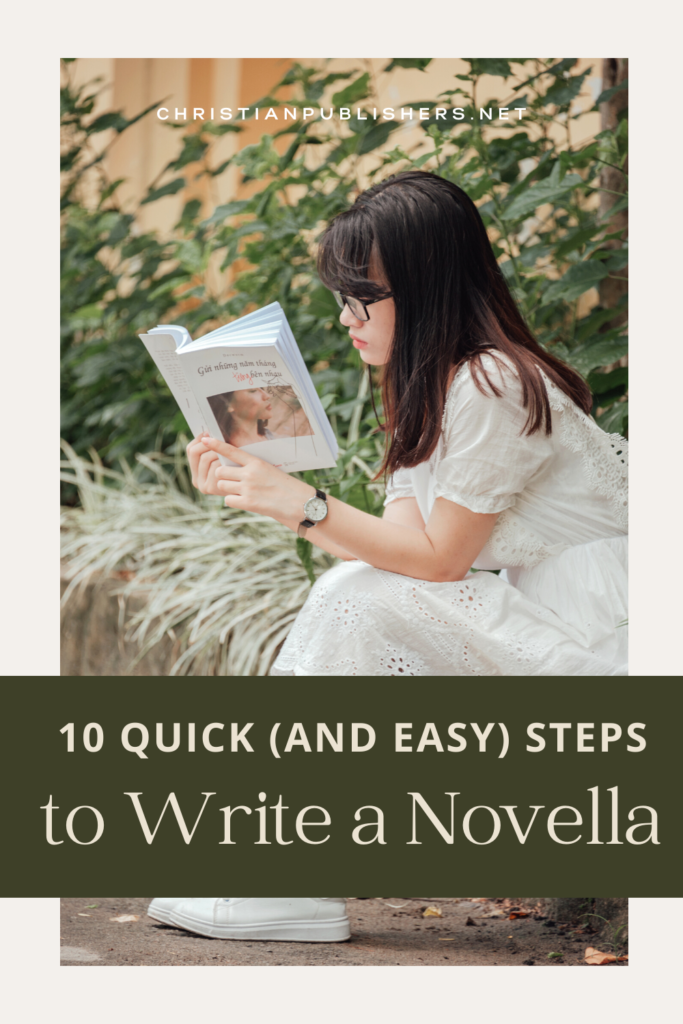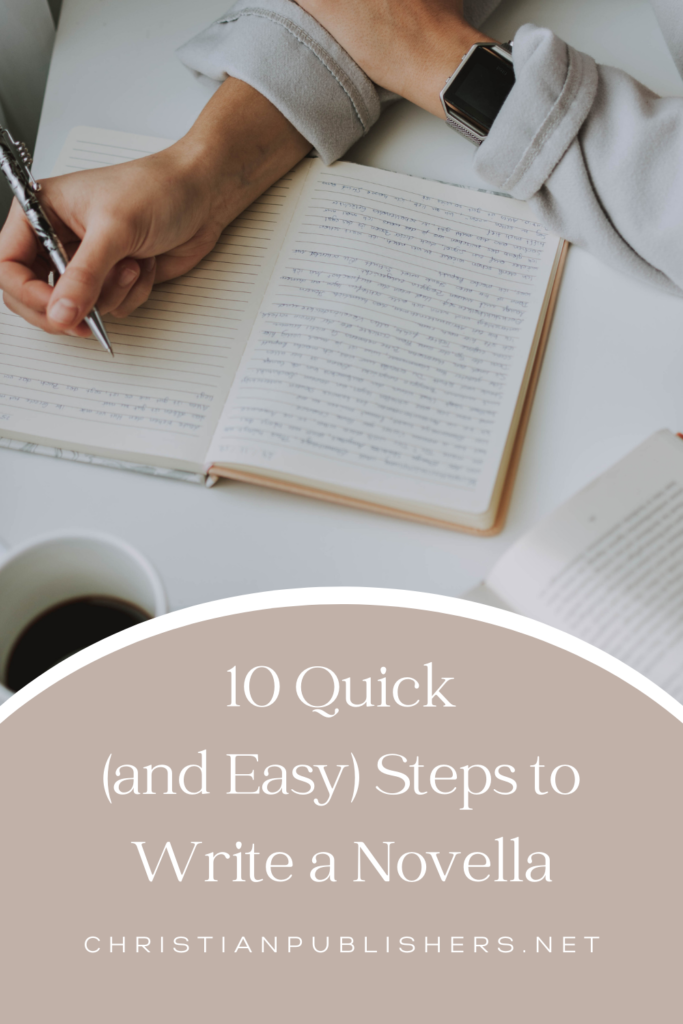
10 Quick (and Easy) Steps to Write a Novella
Have you ever wondered just how difficult it might be to write a novella? Well, I used to think writing shorter would make the process easier. But you know what? I learned writing short wasn’t easier than writing longer. In fact, it wasn’t simple at all. The first two novellas I penned required hours of editing to meet guidelines. I actually abandoned those books because I couldn’t figure out how to cut words without cutting the story.
My next foray into writing was a full-length novel. I wanted to know if I had at least one book in me. Well, I went on to write and publish forty-eight more books after that first one. Number fifty releases soon.
To be honest, the first time I was offered the opportunity to write a novella, I felt like I was cheating the reader in some way. At less than half the size of a regular novel, surely the story would be shallow. Unsatisfying. Unfulfilling. And how could I possibly get the main plot, three subplots, and eight primary characters into 30,000 words?
Well, I couldn’t. That’s the beauty of a novella. It only needs the main plot, one subplot, hero, heroine, and a bad person. A reader could pick up the book and read it in three hours or less. The perfect summer beach read, or plane trip story. Or train. Or car. Or bedtime reading.
Surely readers would feel cheated. No again. At a lower price point than a full-length novel, readers grab up novellas in both digital and print versions because they actually like to augment their deeper reading with something shorter.

10 Quick and Easy Steps to Write a Novella
Learning how to write a novella required me to change my mindset about the format. Not only was the number of words an issue, but even the number of chapters, characters, and subplots.
For those interested in learning how to pen a successful novella, here are the steps:
- Come up with a story that has two interesting people who find themselves in a sticky situation. Many novellas are romance-based for this reason.
- Decide on a sub-plot that will be resolved in this book, or soon if this book is in a series. Nothing too complicated. But choose a sub-plot that relates to the main plot.
- Limit your cast of characters. Hero, heroine, a bad person if needed. For other characters, consider combining them to keep the number down. For example, if you need a next-door neighbor and a firefighter, make the neighbor a firefighter.
- Figure out your story arc. Just because it’s shorter doesn’t mean you can make it any less satisfying. Show your characters in their usual world, yank them out of it, force them into deciding.
- Limit the situations to two Black Moments or Crisis Points. You simply don’t have enough room in a novella to do more than that. The second Black Moment should be more difficult than the first, forcing your character to make a tougher decision.
- Offer your character alternatives to choosing the hard road, just like in a full-length novel.
- Keep in mind if you’re writing a faith-filled novella to force your character into making decisions in keeping with their faith, or in direct contrast to what they currently believe. This will increase tension for the characters and the reader.
- Modern readers of Christian or faith fiction don’t need a salvation scene, preaching, sermons, or a lot of prayers. Instead, weave your message through the dialogue, the internal thoughts, and foreshadowing.
- Keep the storyline clean, in other words, no sex, cursing, or extreme violence on the page. You can allude to these, but readers of Christian fiction don’t want that stuff.
- The best stories show the hero and/or heroine in a different frame of mind by the end of the story. They should have recognized their weaknesses and made choices to overcome them. They should have grown in their faith in the right direction. Relationships don’t have to be perfect, but if that’s the theme of the story, they should move forward.
Publishing Opportunities
Novellas seem to work best in romantic genres, including contemporary and historical fiction. Cozy mysteries are popular venues for novellas, as is romantic suspense. Again, limit the characters and the storylines, and you should have plenty of room for a great tale.
Some publishers have developed a niche market for novellas by bundling them into collections of four to nine (or more) authors, with the stories having a common link. Sometimes the connection lies in the heroine’s name or occupation. Sometimes the characters are connected by living in the same town, or maybe they are friends out for an adventure. Whatever the link, readers like these collections, as sales testify, because they can sample multiple authors in the same collection. If they don’t prefer one story, they’re bound to find several that they do.
For independent authors who self-publish, novellas are a quick and easy way to keep readers satisfied until their next full-length novel releases. Many Christian authors publish only novellas, and with the proper book marketing, are very successful with a large readership. Indie publishing sites, such as Amazon, encourage these shorter books through their algorithms because indie authors often can release more books in a year.
Contests and Awards
Most Christian and secular book awards now include novellas in their contests, and many have specific categories for these shorter novels. The writing world has come a long way in recent years. While many once regarded novellas as second-best to full-length novels, savvy readers and judges now recognize that writing shorter can be more challenging.
Which is exactly what I’ve learned. I love writing novellas now because I understand the format and don’t have to go back during editing and cut a lot of words to bring the length down to fit the guidelines. In my most recent novella, Time Will Tell, I had several ideas for situations to place my hero and heroine in, but I knew I had to limit the time they spent in trouble so I could develop the romance sufficiently. Perhaps I’ll save those other circumstances for a sequel. Or a different series altogether.
About the Author
Donna Schlachter writes contemporary and historical mysteries and has been published more than fifty times in novellas, full-length novels, and non-fiction books. She is a member of several writing communities; facilitates a critique group; teaches writing classes; edits; ghostwrites; blogs regularly; and judges in writing contests. She lives in Denver with her husband and two cats, finding mysteries wherever she travels. You can find her books on Amazon under both her name and that of her former pen name, Leeann Betts. She is currently hiding out at www.HiStoryThruTheAges.com and www.LeeannBetts.com.




